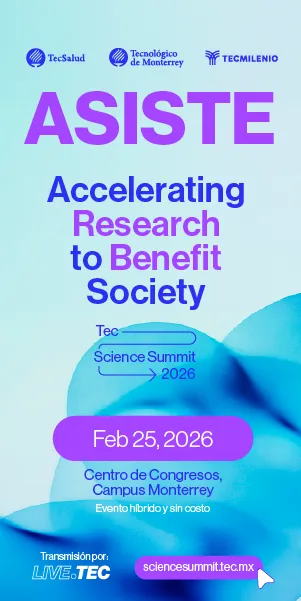By María Lucila Osorio and Sergio Madero*
Generation Z, defined as those born between the late 1990s and the mid-2010s, now represents 24% of the global workforce—a number projected to climb to 30% by 2030, according to Manpower Group (2023a).
The older members of Generation Z are advancing in their careers, moving into frontline supervisory roles and even mid-level management positions. As such, their growing influence in the workplace makes it both timely and necessary to evaluate their value and expectations.
These considerations are particularly pressing given the global talent shortage. Manpower Group (2023b) reports that talent scarcity has reached unprecedented levels, sparking a fierce “war for talent” as companies vie to attract and retain skilled workers.
Why, then, has hybrid work emerged as a particularly popular choice among Generation Z? On the surface, hybrid models are appealing for their enhanced flexibility and better work-life balance. Yet, the study “Explaining Gen Z’s desire for hybrid work in corporate, family, and entrepreneurial settings” digs deeper, uncovering subtle nuances in the work environments that these young professionals seek—factors that transcend simple demographic categorizations.
In corporate settings, physical presence is crucial for developing relationships and ensuring visibility within the company. In family businesses, the most valued aspects are the amenities and infrastructure of the workplace. For entrepreneurs, especially in startups, the flexibility of remote work allows for managing various interests and activities simultaneously.
Strengths of Generation Z
As Generation Z steps into the professional world, they are introducing a unique set of traits and expectations that are reshaping the traditional workplace. (Barhate and Dirani, 2022; Gabrielova and Buchko, 2021; Pichler et al. 2021; Yacine and Karjaluoto, 2023).
For businesses, tapping into the strengths that Generation Z brings to the table is becoming increasingly vital. Notably, this cohort’s preference for hybrid work models stands out as a significant trend. However, adapting these models to suit various workplace dynamics is critical, as our studies suggest.
The characteristics of Generation Z that can be beneficial for organizations have been documented by authors such as Graczyk-Kucharska and Erickson (2020), who highlight that this generation’s ability to use technology can improve the accuracy and efficiency of organizations.
This generation’s penchant for independent learning and their perpetual curiosity are also highly valued soft skills in today’s job market. (Manpower Group, 2023b)
Moreover, their strong commitment to diversity and inclusion positions them as ideal partners in multicultural settings. Their readiness to embrace new work methodologies and to innovate upon traditional processes further positions Generation Z as a catalytic force for innovation within organizations.
Embracing Hybrid Work
The landscape of employment is undergoing a seismic shift towards flexible work arrangements, a trend accelerated by the COVID-19 pandemic—a global experiment that has solidified the staying power of these models.
Despite the evident benefits, many organizations remain skeptical of hybrid work structures, with some still resisting their implementation. Yet, these flexible arrangements not only cater to Generation Z’s demand for autonomy but also present substantial benefits for employers.
Hybrid work can lead to significant cost savings on office space, provided there is strategic investment in information and communication technologies. More than just economical, hybrid models offer access to a broader talent pool unrestricted by geographical boundaries, enhance job satisfaction, increase productivity, and contribute to the development of inclusive and sustainable corporate cultures.
Combining the traditional office’s infrastructure, socialization opportunities, and visibility with the flexibility, autonomy, and better work-life balance of remote working, hybrid models represent a balanced approach to modern employment.
Our study found that 77% of university graduates desire to work under hybrid work models, but we also managed to explore beyond the obvious advantage of “flexibility” to understand why Generation Z is so fervently longing for this mode of work.
Work Environment Preferences of Gen Z
The research confirms that the appeal of hybrid work is not limited to demographic factors, but lies in the work context that the graduate aspires to integrate, whether in a corporation, a family business, or an entrepreneurship.
- Corporate work. For those intending to work in corporate environments, the in-person aspect has a greater appeal. They value the opportunity to cultivate social relationships and “be visible” to colleagues and superiors, as well as to be aware of what is happening within the company.
- Family business. For those aspiring to work in family businesses, the in-person aspect of hybrid work is also relevant, but the most attractive features for them are the infrastructure and amenities at the workplace. For this group, an office environment that offers more functionality than working from home represents a haven of comfort and well-being.
- Entrepreneurship. For those undecided or wishing to join a startup or start their own business, the appeal lies in the remote aspect of hybrid work. This allows them to attend to their diverse interests and engage in multiple activities simultaneously, both paid and unpaid.
.
By grasping the motivations behind Generation Z’s strong preference for hybrid work, organizations can strategically refine their talent acquisition and retention strategies. This generation stands poised to enrich the contemporary workplace, bolstering the advantages of hybrid models for businesses that embrace them — moving beyond mere collective desire to tangible, positive impact.
.
References
- Barhate, B., y Dirani, K.M. (2022). Career aspirations of generation Z: A systematic literature review. European Journal of Training and Development, 46(1/2), 139-157.
- Gabrielova, K., y Buchko, A. A. (2021). Here comes generation Z: Millennials as managers. Business Horizons, 64(4), 489-499.
- Graczyk-Kucharska, M., y Erickson, G. S. (2020). A person-organization fit model of Generation Z: Preliminary studies. Journal of Entrepreneurship, Management and Innovation, 16(4), 149-176.
- Manpower Group (2023a). Informe de Tendencias Laborales 2023: Nuevo Informe de la Era Humana. Recuperado de https://www.manpowergroup.com/
- Manpower Group (2023b). Q4 2023 ManpowerGroup Employment Outlook Survey. Recuperado de https://go.manpowergroup.com/meos
- Pichler, S., Kohli, C., y Granitz, N. (2021). DITTO for Gen Z: A framework for leveraging the uniqueness of the new generation. Business Horizons, 64(5), 599-610.
- Yacine, L., y Karjaluoto, H. (2023). Hybrid work: Gen Z expectations and internal employer branding implications. En P. Madan, S. Tripathi, F. Khalique, y G. Puri (Eds.). Re-envisioning organizations through transformational change (pp. 21-50). Routledge.
.
Authors
María Lucila Osorio. Research Professor at EGADE Business School. She is a member of the National System of Researchers and leads the Research Group in the Thematic Area of Retail Industry Transformation at Tec Business School.
Sergio Madero. Research Professor at the Tecnológico de Monterrey Business School. He is a member of the National System of Researchers and directs the Research Group in the Thematic Area of Organizational Structures and Culture Design.
Complete research article at:
https://www.sciencedirect.com/science/article/pii/S0007681324000223















